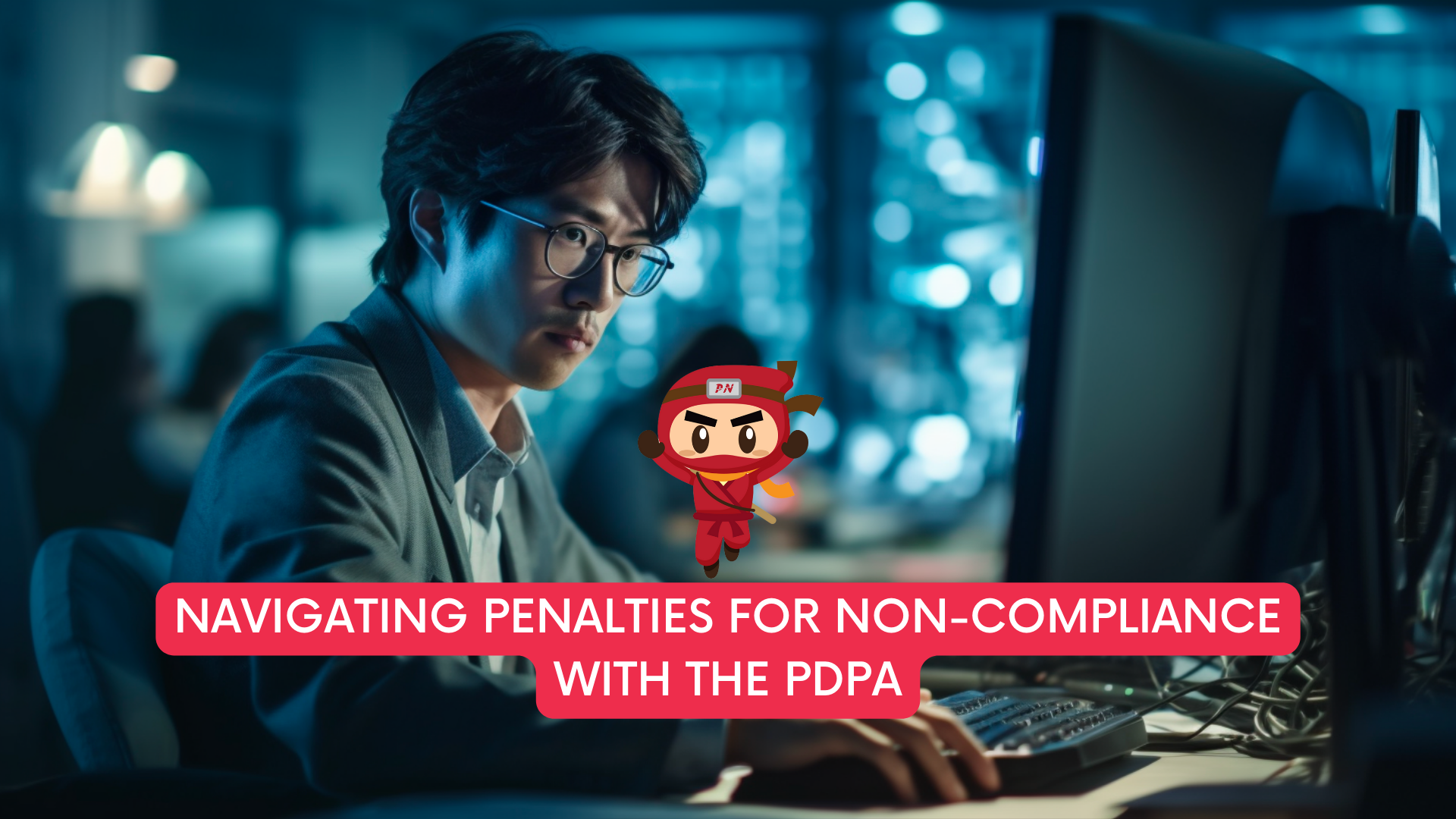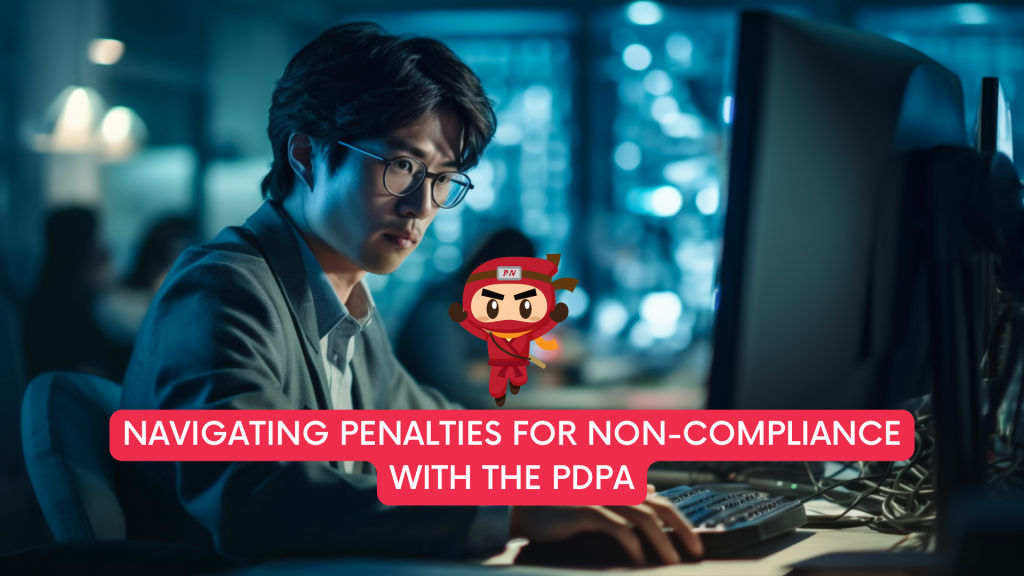KEEP IN TOUCH
Subscribe to our mailing list to get free tips on Data Protection and Cybersecurity updates weekly!







The importance of personal data and its protection has taken the spotlight in this modern and digital era. In Singapore, the Personal Data Protection Act (PDPA) has been enacted to guard against misuse of personal data.
This legislation provides individuals with more control over their personal information, while simultaneously setting expectations for businesses about how they should handle this data. As with any legislation, non-compliance comes with penalties.
The consequences of non-compliance with the PDPA can be severe, especially if your organisation does no have a Data Protection Officer to mitigate it. Apart from potential reputational damage that could lead to loss of customers and revenue, organizations may also face stiff financial penalties.

The Personal Data Protection Commission (PDPC) has the authority to impose financial penalties on organizations that fail to comply with the PDPA. As of the last update in my training data (September 2021), the maximum financial penalty is SGD 1 million.
This fine is a significant deterrent designed to ensure businesses take data protection seriously. However, the exact amount of any given penalty is determined by the nature of the non-compliance, the harm caused, and the organization’s actions taken to mitigate the damage.
In addition to financial penalties, the PDPC also has the authority to issue directions for organizations to take remedial action. Such measures may include instructing an organization to stop collecting, using, or disclosing personal data in contravention of the PDPA, or to destroy personal data collected in violation of the act. Compliance with these directions is mandatory and failure to do so can lead to additional penalties.
In some circumstances, non-compliance with the PDPA may even attract criminal liability. For instance, the unauthorized disclosure of personal data due to negligence, the alteration of personal data to prevent its accurate disclosure, and re-identification of anonymized data are all offenses that can lead to fines and imprisonment.
For businesses operating on a global scale, the impact of PDPA non-compliance could extend far beyond Singapore’s borders. Non-compliant companies may face legal ramifications in other jurisdictions where similar personal data protection laws exist. A breach of PDPA could potentially trigger investigations by other countries’ data protection authorities if the breach affects their residents.

In light of these severe penalties, it is imperative for organizations to embed a culture of compliance into their operations. This includes training staff on PDPA regulations, establishing robust data protection policies and practices, and regularly reviewing these measures to ensure they remain up to date.
Your appointed DPO can work with you on your PDPA compliance, ensuring that there will be policies in place to make sure that the handling of personal data is PDPA compliant. This includes promptly responding to the PDPC with their queries to expedite the investigations and prevent a harsher penalty from the Commission.
A Data Protection Officer (DPO) oversees data protection responsibilities and ensures that organisations comply with the Personal Data Protection Act (PDPA). Furthermore, every Organization’s DPO should be able to curb any instances of PDPA noncompliance as it is the officer responsible for maintaining the positive posture of an organisation’s cybersecurity.
DPOs complement organisations’ efforts to ensure that the organisation’s methods of collecting personal data comply with the PDPA. It also ensures that policies are set in place to make sure that there will be no instances of data breaches in the future.
Don’t wait any longer to ensure your organisation is PDPA compliant. Take our free 3-minute PDPA Compliance Self-audit checklist now, the same “secret weapon” used by our clients to keep them on track. Upon completion, we will send you the results so you can take the necessary action to protect your customers’ data. Complete the free assessment checklist today and take the first step towards protecting your customers’ personal data.